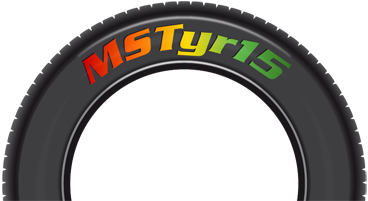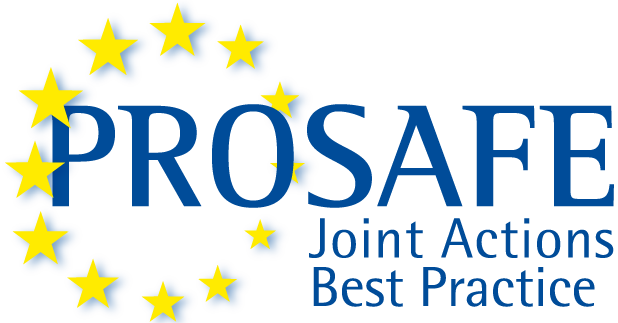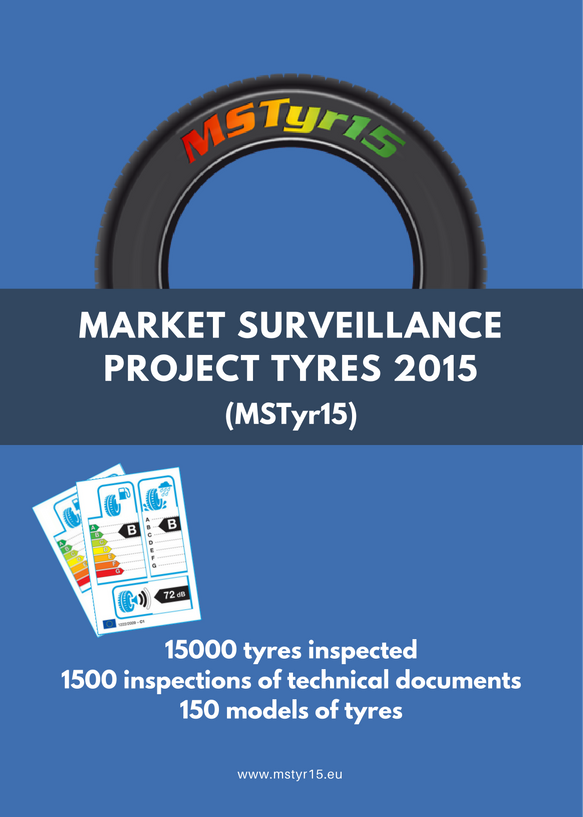Market Surveillance Action on Tyres
Market Surveillance Action for Tyres 2015 (MSTyr15) was funded by the European Commission's Horizon 2020 and was focusing on a single main product: passenger car tyres. The global objective of MSTyr15 was to help deliver the intended economic and environment benefits of the labelling of class C1 (summer and winter passenger car) tyres with respect to improving fuel efficiency, Rolling Resistance (RR) and Wet Grip (WG) parameters by increasing the rates of compliance with the regulatory requirements.
 The project was officially launched with a conference held in April 2016 in Brussels and the main presentation can be downloaded from here. MSTyr15 ended on 30 June 2018 and the second Press release annoucing it and summarising the final project results may be found below.
The project was officially launched with a conference held in April 2016 in Brussels and the main presentation can be downloaded from here. MSTyr15 ended on 30 June 2018 and the second Press release annoucing it and summarising the final project results may be found below.
In order to achieve the project goal, several specified activities were completed in a collaborative way, which included the following:
- Developing of Good Practice Guidelines to ensure consistency in the testing and inspection procedures;
- Developing of a Training Video in 15 languages to make sure all Market Surveillance Officers acquire the skills needed for inspections;
- Performing of label inspections on C1 passenger car tyres against the requirements of the EC regulation;
- Carrying out of technical documentation inspections provided by economic operators;
- Testing of class C1 car passenger tyres;
- Taking of enforcement actions against the non-compliant tyres.
Fifteen market surveillance authorities are taking part in the project: Belgium, Bulgaria, Croatia, Estonia, Finland, Germany, Ireland, Latvia, Lithuania, Luxembourg, Poland, Romania, Spain, Sweden and Turkey. The list of participating organisations can be viewed here.
In total, 12.241 labels on C1 passenger car tyres were checked by the participating Market Surveillance Authorities (MSAs) to see whether they meet the EC regulatory standards. A sum of 131 passenger car tyres were tested by an accredited laboratory against the European Commission (EC) Regulation 1222/2009 regarding Wet Grip and Rolling Resistance. Futhermore, 876 sets of technical documentation were reviewed and checked and the results may be found in the second Press release here.
Press Releases and Newsletters were published in English and translated into various national languages of the consortium partners. They are available for download below:
First Press Release:
| EN: |
BG: |
FI: |
FR-LU: |
DE: |
LV: |
First Newsletter:
| EN: |
BG: |
FI: |
FR-LU: |
DE: |
PL: |
ES: |
Second Newsletter:
| EN: |
BG: |
FI: |
FR-LU: |
DE: |
PL: |
ES: |
SE: |
TU: |
Third Newsletter:
| EN: |
BG: |
FI: |
DE: |
ES: |
TU: |
Fourth Newsletter:
| EN: |
BG: |
HU: |
FI: |
DE: |
LT: |
PL: |
RO: |
ES: |
TU: |
Second Press Release:
| FR: |
BG: |
BE: |
FI: |
LU-FR: |
PL: |
RO: |
The work programme consisted of 6 “Work Packages”
WP1 – Management. PROSAFE provided the day-to-day management.
WP2 – Development and Implementation of Best Practice. The objective of this WP was to have all participating MSAs using common methods, protocols and checklists through developing and then implementing the guidelines throughout their activities whilst undertaking WP5 – and thereafter.
WP3 -Training for MSAs. A series of Good Practice Guidelines was developed in order to train the MSAs:
Module A - Good Practice Guidelines for Coordinated and Effective Market Surveillance of energy labelling of tyres
Module B - Summary of the legal background governing the labelling of tyres in the EU
Module C – Description of the tyre label
Module D – Guidance for inspecting the display of labels on tyres
Module E – Guidance for making an examination of technical documentation for tyre labels
Module F - Guidance for the Conduct of Market Surveillance Tests
A label inspection training was also developed and is available in the following languages: Bulgarian, Croatian, English, Dutch, Estonian, Finnish, French, German, Latvian, Lithuanian, Polish, Romanian, Spanish, Swedish, Turkish. A secondary objective was to enable training to be easily accessible and to be further available to all EU MSAs, not just to those formally participating in this programme.
WP4 - Development and adoption of a database for recording the results of inspections. This work package brought a novelty into market surveillance by introducing an application specially created for this programme. The tool gives the MSAs the possibility to add all information collected after each tyre inspections into a database which can be accessed by any of the participants.
WP5 - Inspection and testing. The objective of this work package was to carry out an action for coordinated monitoring, verification and enforcement of class C1 (summer passenger car) tyres, subject to (REGULATION (EC) No 1222/2009, REGULATION (EU) No 228/2011, REGULATION (EU) No 1235/2011) using the Good Practices developed earlier in this programme. A flyer with information about tyre labelling and the MSTyr15 project was developed in order to be handed out to suppliers and distributors during the inspections of tyres.
WP6 - Communication with stakeholders and wider dissemination. The objective of this work package was to make consumers and stakeholders aware of this programme; of its intents and achievements, both concerning the test results, and on a wider scale, to ensure the results are disseminated (for exploitation) to the widest possible audience.

